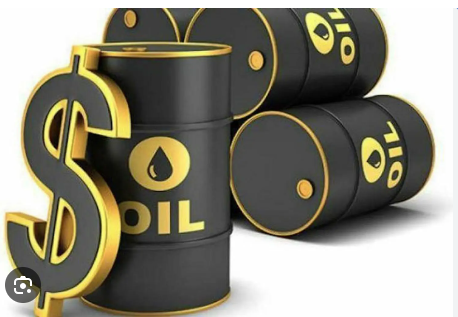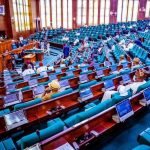According to Mr. Bello Rabiu, a former Chief Operating Officer of the Upstream Business Unit of the now-defunct Nigerian National Petroleum Company Limited (NNPC), the nation still exchanges 450,000 barrels of crude oil per day (bpd) for roughly one million metric tons (MT) of gasoline, or 1.341 billion liters, through the state oil company.
According to Rabiu, the finished goods were provided by NNPC, Nigeria’s only importer of gasoline, and certain foreign traders through the Direct Sale Direct Purchase (DSDP) arrangement, often known as crude swap.Speaking shortly after petroleum downstream firms operating under the Major Energy Marketers Association of Nigeria (MEMAN) revealed that the current landing cost of gasoline into the nation is N1,117 per litre, the former NNPC officialFurthermore, the Chief Consultant and Founder of B.
According to Abiodun Adedipe of Adedipe Associates Limited, the shortage of feedstock for local refineries, especially the 650,000 bpd Dangote Refinery, which has the capability to meet domestic gasoline demand, is the root source of dissatisfaction in the Nigerian gasoline supply value chain.
During a webinar hosted by MEMAN, the three speakers advocated for a petroleum downstream market that is both fair and competitive in order to maintain reasonable prices and availability of goods.During his presentation, Rabiu contended that the federal government’s claim of eliminating the gasoline subsidy was insufficient to demonstrate deregulation.According to him, it also necessitates the development of a competitive market environment to ensure that consumers may purchase goods at reasonable costs.
Now an independent consultant, Rabiu denounced the NNPC’s exclusive importation of gasoline, claiming that “this is a monopoly, which is against deregulation procedures.”Speaking, he stated: “With consumption capacity estimated at approximately one million MT (1.341 billion liters), petroleum products are currently supplied through NNPC’s DSDP importation program, which contracts local and international traders to lift Nigerian crude oil owned by NNPCL and deliver them ex-Lagos.
“This remains the only supply source of PMS in the Nigerian market due to inability of other players to secure forex for direct importation. Thus, NNPC is effectively the only supplier of PMS in Nigeria today.
“Being the only supplier and importer of PMS in Nigeria, NNPC is currently the determinant of PMS price as other players are only adding their margins to arrive at pump price depending on location.”He therefore called for a review of the current business model and institutional arrangements of the deregulation policy which has resulted in one dominant player’s power to import and fix the prices of petrol across the nation.Rabiu added that this was not consistent with the provisions of Petroleum Industry Act (PIA) 2021 which envisages the participation of multiple players operating under open competitive environment.
“With multiple supply sources from import and domestic refineries under a level playing field, aimed at delivering products at lowest possible prices at the pump.
“Under the current model, No one knows the actual cost of importing a litre of PMS into the Nigerian market except NNPC. The Nigerian Midstream and Downstream Petroleum Regulatory Authority (NMDPRA) no longer publish the pricing template to enable the citizens know the official landing cost of any product Ex-Lagos since the announcement of full price deregulation and total removal of PMS subsidies,” he said.According to him, this situation has resulted in total lack of accountability and substantial revenue leakages that cannot be quantified due to lack of transparency in the process.
“If we can be told what Customs duty is daily in Nigeria, we should be equally told how much is the fuel being imported.“For example, NNPC insists there is no more subsidy in the pricing of PMS but the difference between the Automotive Gas Oil (AGO) and PMS open market prices clearly shows some elements of subsidies or hidden cost recovery in the open market prices of PMS across the nation” he stated.Speaking at the session, Executive Secretary of MEMAN, Mr. Clement Isong, revealed that the current landing cost of petrol into the country now stands at N1,117 per litre.
Additionally, he revealed that the landing costs for diesel are N1,157 per liter and the landing costs for Aviation Turbine Kerosene (ATK) are N1,217 per liter. He clarified that these costs include freight and administrative expenses.Isong encouraged the private sector to invest in benchmarking and added that there must be a free flow of marketing information. He also informed the association that the landing cost data would henceforth be published on a daily basis.
“Henceforth MEMAN will be publishing petroleum products landing cost of PMS, ATK, and AGO on daily basis, newsletter on weekly basis, quarterly industry report and yearly reports,” he stated.
Adedipe, for his part, demanded that the $20 billion facility’s commercial arrangement and operation policies, which have an impact on the market, be announced as soon as possible by the NNPC and the federal government.
The world’s largest single-train refinery will soon become a major supplier of petroleum products in the Nigerian market, with some identified implications, he said, adding that the refinery’s entry into the downstream petroleum sector was a game-changer in Nigeria’s journey towards full deregulation.
“Complete silence of government policy makers, regulatory authorities and NNPC on the operational readiness of Dangote Refinery and the new business model and commercial arrangement” was one of Adedipe’s worries.
Therefore, Adedipe pleaded with the regulators to take action that would allow the medium- to long-term market to set the pricing of petroleum products and services.
However, he stated that in the near future, regulatory action is necessary to guarantee Dangote Refinery’s seamless integration into the supply chain.
He said that this intervention should ensure that consumers are protected and that things are sold at prices that are commensurate with their costs.
“Perhaps, it is appropriate to return to guided deregulation with reintroduction of pricing template at this time to encourage efficiency and competitive market behaviour,” he added.
The economist offered the following recommendations for the future of the nation and the downstream industry: the government should work in concert with all relevant parties to successfully implement the Petroleum Industry Act (PIA) 2021 and attain the lowest possible cost of refining or product importation into the Nigerian market.
In order to ensure cost recovery by all refiners and gasoline importers on an even playing field, he encouraged the regulators to take the necessary action by involving all pertinent players and providing suitable recommendations.
Adedipe further argued that industry participants should unite to oppose any anti-competitive actions, including collusion and the misuse of market share in setting petroleum product prices.
He asked for the introduction of transparency in the downstream value chain to enable customers know and realise value for what they are paying, adding that there should be adequate management of the price volatility through publication of monthly guided pricing.
A Public Private Partnership (PPP) arrangement should be used to reposition and adequately fund the NNPCL Pipelines and Storage Company so that it can function as an impartial transportation and storage organization that serves NNPC and all other oil marketing companies under an open access policy. This is another suggestion made by the analyst.




